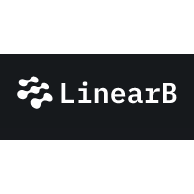
gitStream
gitStream enables teams to streamline their code review processes by automating pull request management through customizable rules. It intelligently assigns reviewers, flags deprecated code, and enriches PRs with contextual tags, allowing developers to focus on impactful changes while enhancing merge efficiency based on complexity and size.
Top gitStream Alternatives
CodeRabbit
With a focus on privacy, this tool transforms pull request reviews through contextual, line-by-line suggestions and an interactive chatbot that learns over time.
StepSecurity
StepSecurity transforms CI/CD security with a robust platform that prioritizes visibility, detection, response, and remediation.
Squire AI
Squire AI streamlines code quality by reviewing submissions in under a minute, enabling developers to focus on impactful work.
Ellipsis
An advanced AI code review tool, Ellipsis streamlines the development process by automatically reviewing code and addressing bugs within pull requests.
Codegrip
Codegrip allows users to tailor code review rule sets to their specific standards, prioritizing relevant issues while bypassing less critical bugs.
Astronuts
Astronuts revolutionizes the code review process with its AI-driven platform, which automates code analysis and suggests bug fixes through intuitive line-by-line comments.
HOJI AI
By leveraging a sophisticated AI pipeline built on GPT-4, it intelligently contextualizes code without using...
Baz
By organizing pull requests into clear Topics and leveraging dynamic retrieval and semantic analysis, it...
Top gitStream Features
- Agentic AI assistants
- Configurable review rules
- Automated reviewer assignment
- Contextual label application
- Deprecation checks integration
- Pull request classification
- Merge path automation
- Contextual comment addition
- Auto-approval for simple changes
- Org-level coding standards enforcement
- Customizable workflows
- Enhanced decision-making support
- Efficiency tracking metrics
- Integration with existing tools
- Real-time feedback loops
- Change size analysis
- Complexity assessment features
- Historical data insights
- Merge efficiency optimization
- Developer empowerment tools







